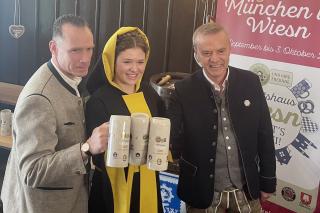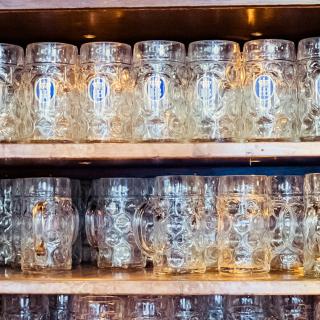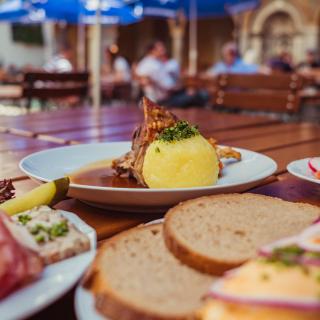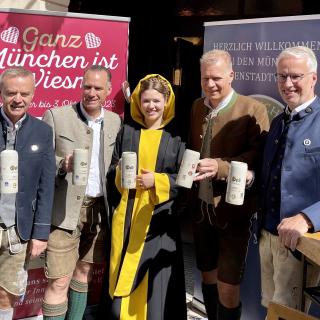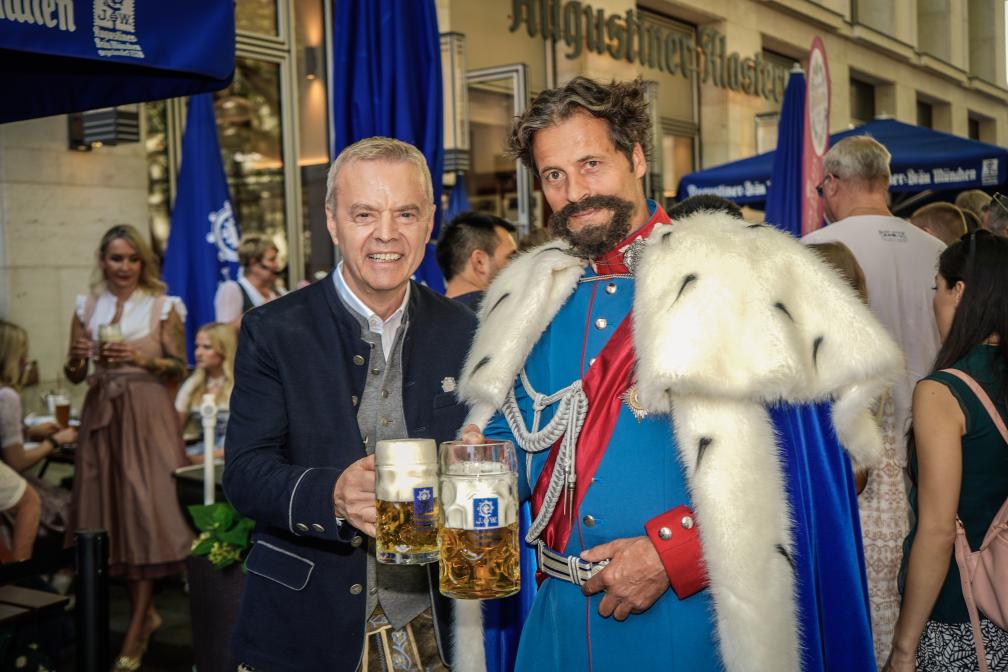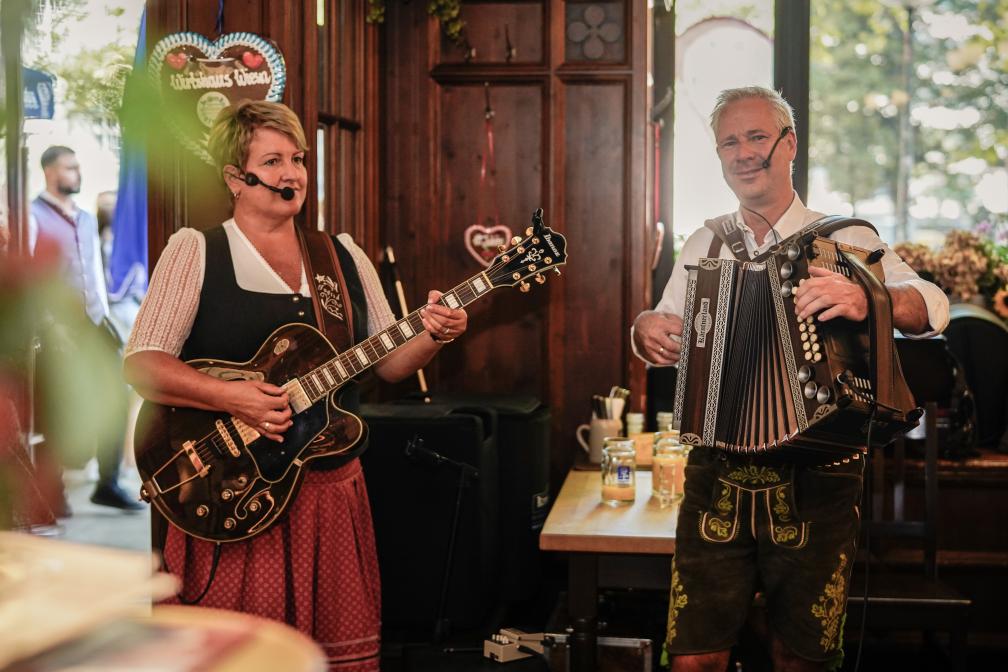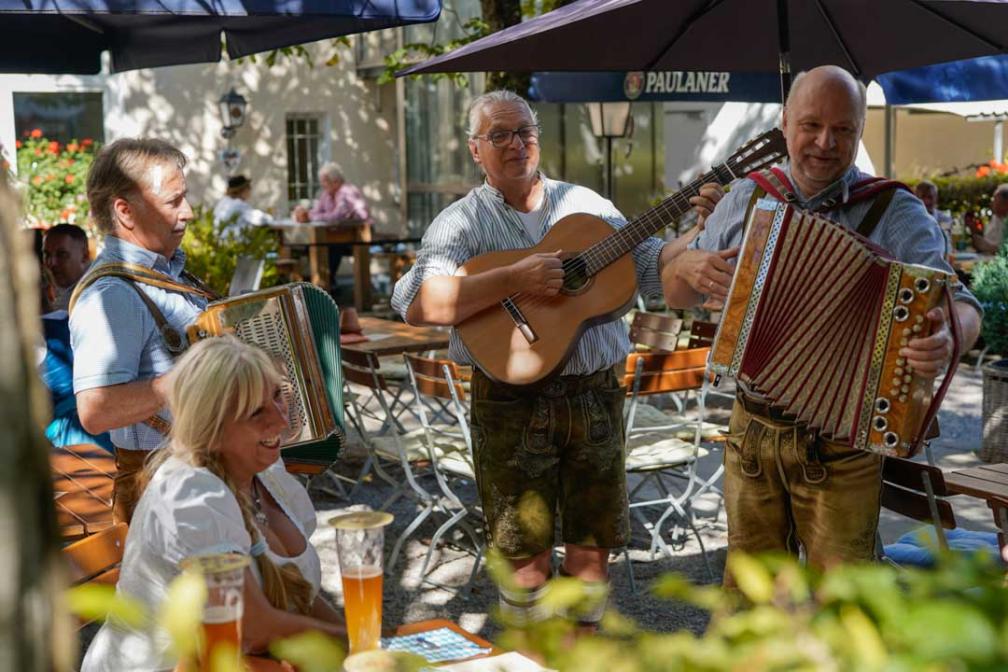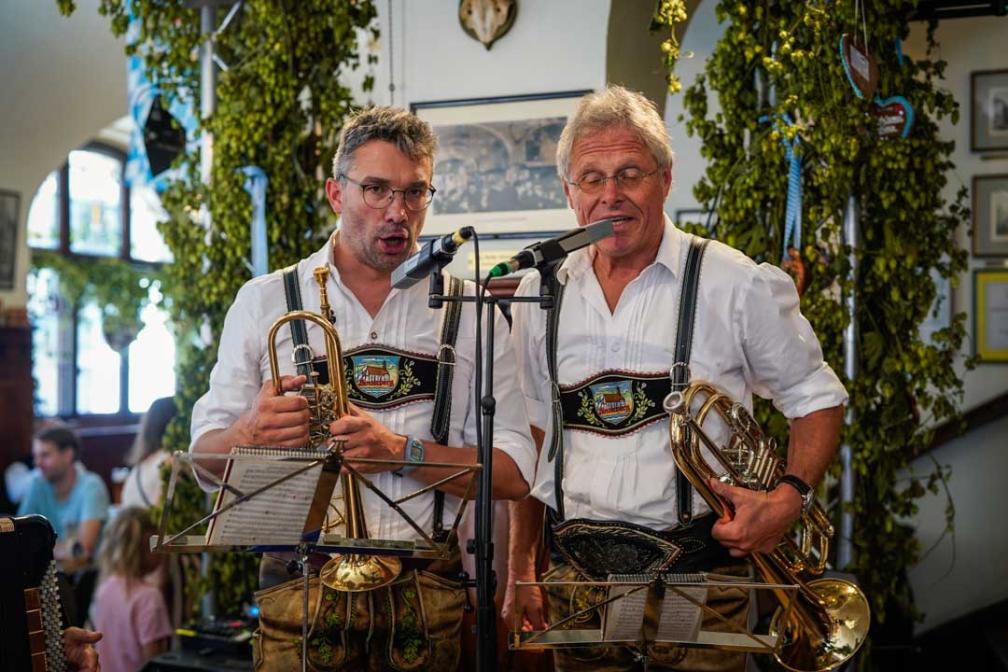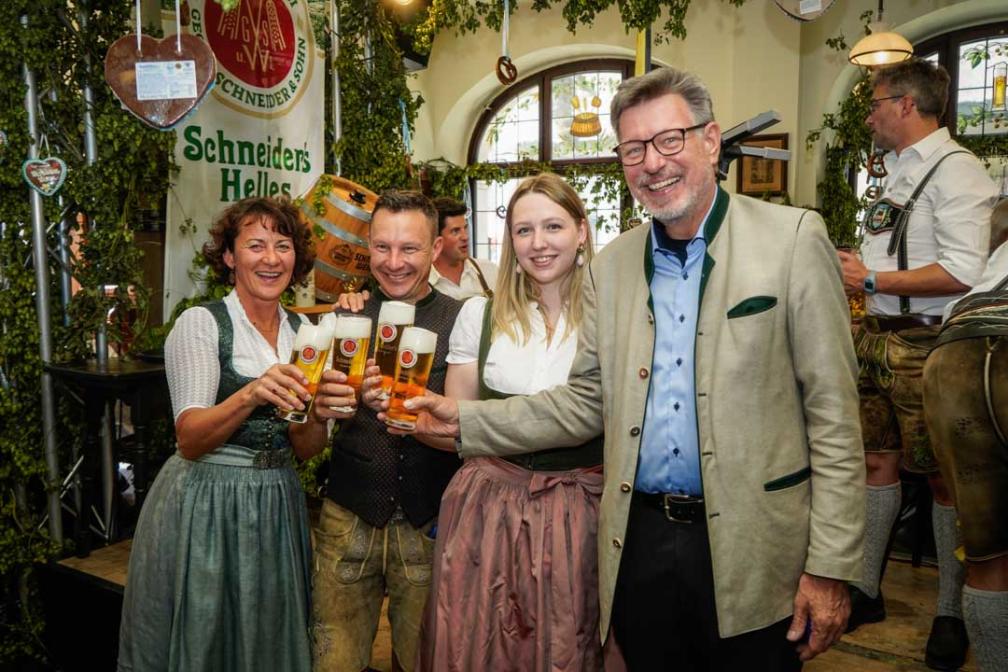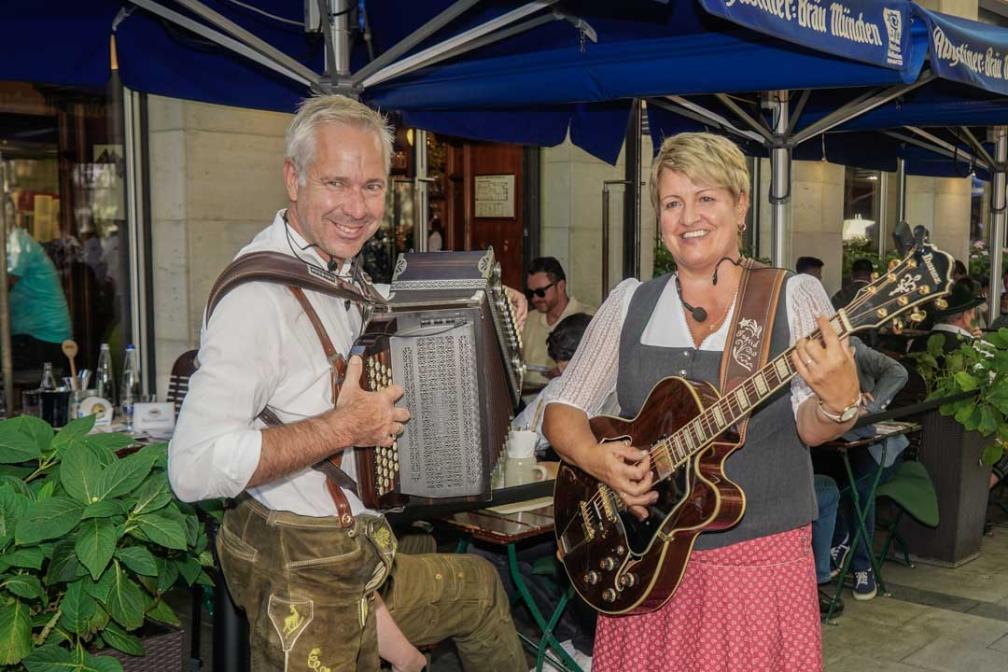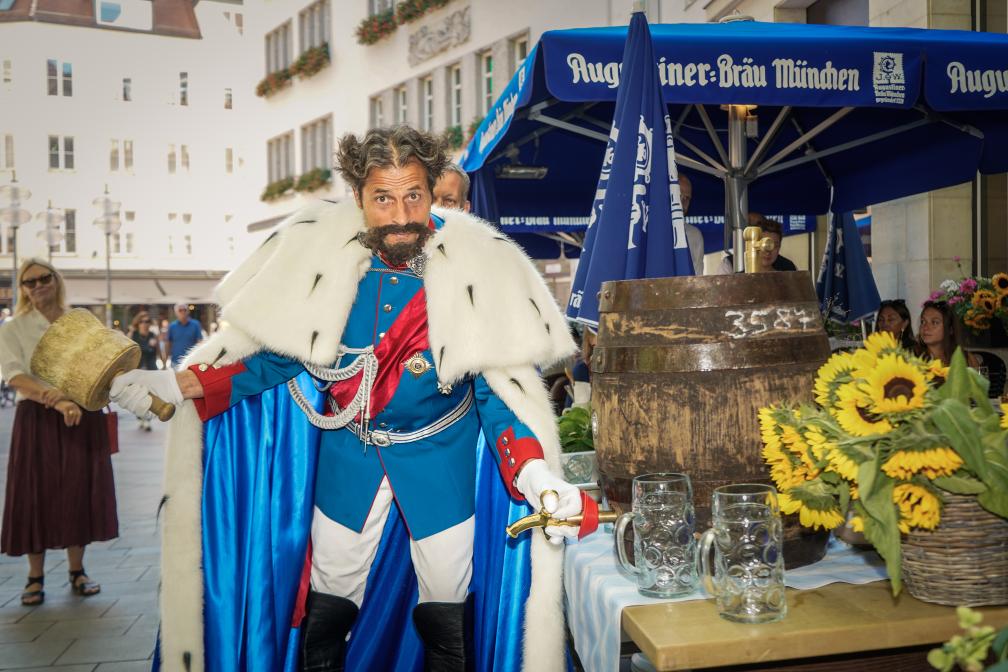The WirtshausWiesn 2023 in Munich
This is how the WirtshausWiesn ran in Munich's inns
The WirtshausWiesn was held again this year - for the fourth time in a row and for the second time in parallel with the Oktoberfest. From September 16 to October 3, 2023, there was an Oktoberfest atmosphere in around 40 Munich restaurants.
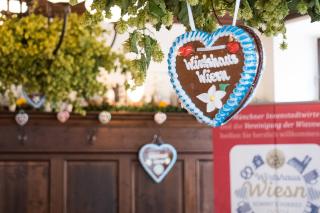
"All of Munich is Wiesn!" - Oktoberfest and WirtshausWiesn again at the same time
In 2023, the motto was once again "Welcome to the Oktoberfest AND to the WirtshausWiesn!" Due to the positive response, the campaign of the Association of Munich City Center Innkeepers again took place parallel to the Oktoberfest. The WirtshausWiesn not only created an Oktoberfest atmosphere on the Theresienwiese, but also in the 40 or so participating Munich inns and beer gardens - and that's why the official motto was also: "All of Munich is Wiesn!"
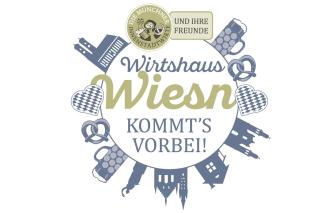
Oktoberfest feeling with decoration, food, drink and music
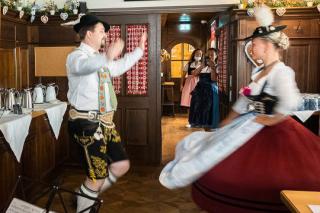
In 2023, the Munich breweries' specially brewed Oktoberfest beer was served. The guest rooms of the pubs were decorated in a way typical of the Oktoberfest, for example with gingerbread hearts and fresh hops, reminiscent of the fragrant decorations in the festival tents. There were Bavarian delicacies from the Oktoberfest menu from the tents and, of course, fresh Wiesn beer on tap in mugs.
In addition, the classics from the Oktoberfest tents awaited: Freshly roasted chicken with crispy skin, pork knuckles or roasts with dumplings, Kasspatzen or even a classic Wiesn snack with pretzels, Obazdm and sausage salad. A few specials were offered as well: In addition to chicken, knuckles or delicious Steckerlfisch, Bavarian creative cuisine was often on offer - for example, WirtshausWiesn pizza. These were the delicacies >>
And what would the Oktoberfest feeling be without music - which also played in the pubs and beer gardens. There were not only traditional sounds, also young Bavarian music was represented.
On the way to becoming a new tradition: the WirtshausWiesn now takes place every year
"The WirtshausWiesn is the perfect complement to the Oktoberfest. It also brings Oktoberfest flair to the city center," said Wiesnwirte spokesman Peter Inselkammer. Gregor Lemke, spokesman for the association of Munich city center innkeepers, was also looking forward to 18 days of Oktoberfest feeling in the city: "Oktoberfest - that's a deep sense of life that we bring to our city in many places with our WirtshausWiesn: visually and culinary, Munich-style."
What Oktoberfest tradition is behind the WirtshausWiesn?
The idea for the WirtshausWiesn is based on a tradition that is more than 200 years old: the original Oktoberfest looked very different from the Wiesn we know today. For the royal wedding of Crown Prince Ludwig of Bavaria and Princess Therese in 1810, only horse races took place on the Theresienwiese itself, costume groups performed, and instead of Wiesn tents, there was a pavilion to pay homage to the royal wedding couple.
On the other hand, the entire city was festively decorated: tables and benches with food and drinks were set up on Marienplatz and Orleansplatz, and the population was invited to celebrate in the restaurants for five days - it was clear that this was gladly accepted.
